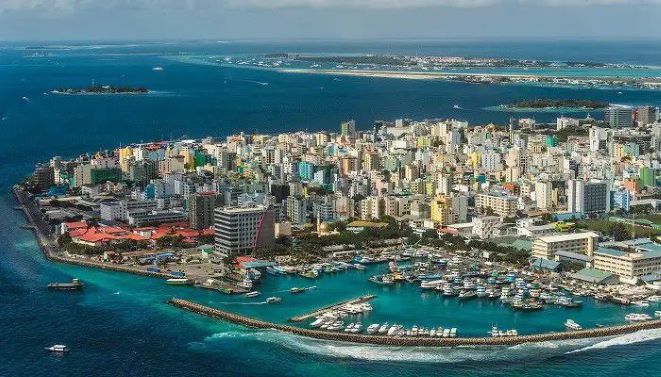For many years, the Maldives primarily relied on fishing and trade to meet basic needs, facing challenges due to a lack of a robust economy. The situation changed in the early 1970s when tourism was introduced. President Ibrahim Nasir’s vision, combined with the efforts of locals and collaboration with foreign tour operators, led to the opening of the Maldives to tourism in 1972.
This move significantly boosted the economy, providing a stable source of foreign currency. Initially catering to elites, tourism expanded in the 1980s with various parties entering the sector and establishing numerous resorts.
Despite benefits, concerns arose about depending solely on tourism. Emerging markets like Saudi Arabia’s Red Sea project presented new possibilities. Additionally, the sensitivity of the tourism market, evident during the impact of COVID-19, highlighted the need for diversification.
To broaden the economic base, opportunities in shipping, trading, and transshipment, especially with docking services, were recognized due to the strategic location of the Maldives on global transport routes. Exploring oil refining domestically, considering the heavy reliance on imported oil, emerged as another potential avenue.
Encouragingly, the new government decided to diversify the economy by establishing the Maldives Industrial Development Free Zone. This initiative aims to optimize profits through large-scale importation, re-exportation, and enhancing trade activities.
Beyond traditional sectors, the Maldives could explore opportunities in technology, creating a tech hub to foster innovation and attract global investments. Developing a robust banking sector and investing in sustainable agriculture, fisheries, and renewable energy could further contribute to economic resilience.
Breaking away from sole dependence on tourism requires a multifaceted approach. Policies supporting small and medium-sized enterprises (SMEs) can encourage the growth of industries beyond tourism. Education plays a pivotal role; focusing on skill development and aligning educational programs with emerging industries can equip the workforce for a diversified economy.
While tourism remains crucial, a diversified economy enhances resilience against external shocks and sets the stage for sustained long-term growth. The Maldives has the potential to become a dynamic economic hub, requiring a holistic and forward-looking approach, along with strong political will.
The new government, led by Dr. Mohamed Muizzu, envisions economic diversification. The government’s manifesto outlines initiatives paving the way for this, offering hope for a more diversified and resilient economy.

